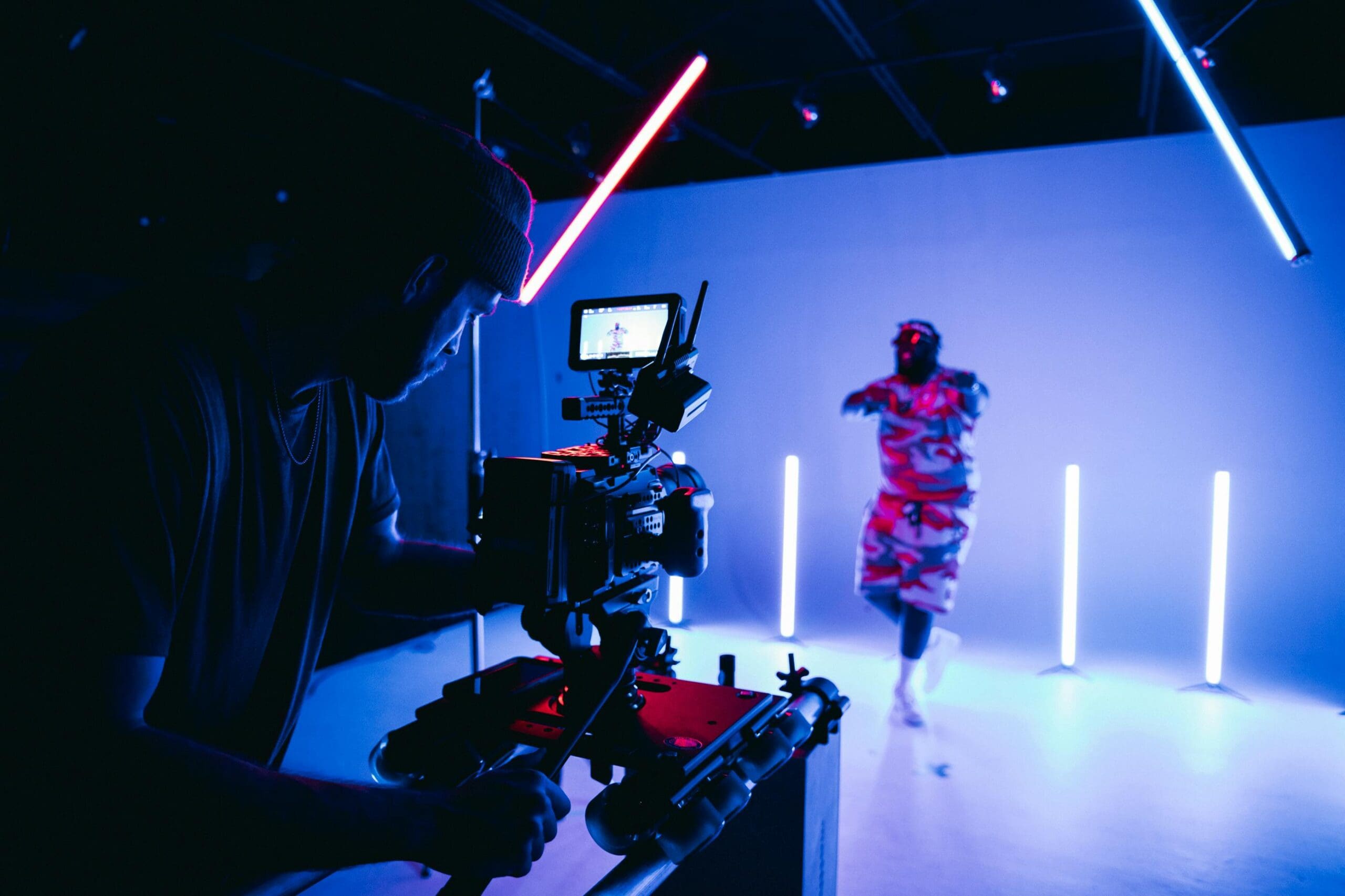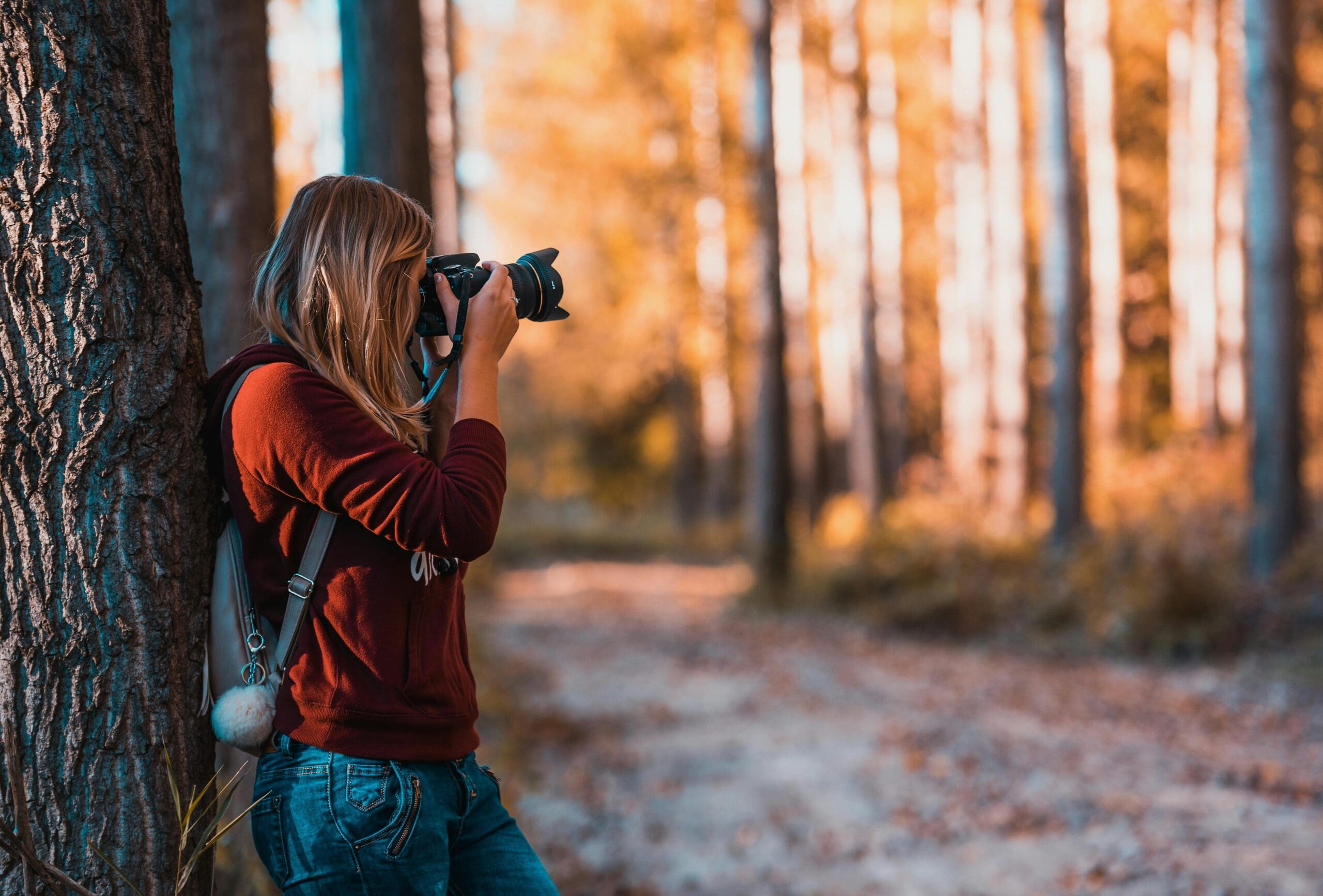Starting a videography course can feel overwhelming. With countless camera settings, editing software options, and technical jargon, where do you even begin? Whether you’re dreaming of filming weddings, creating YouTube content, or producing commercials, this comprehensive guide will walk you through everything you need to know about videography education in Australia.
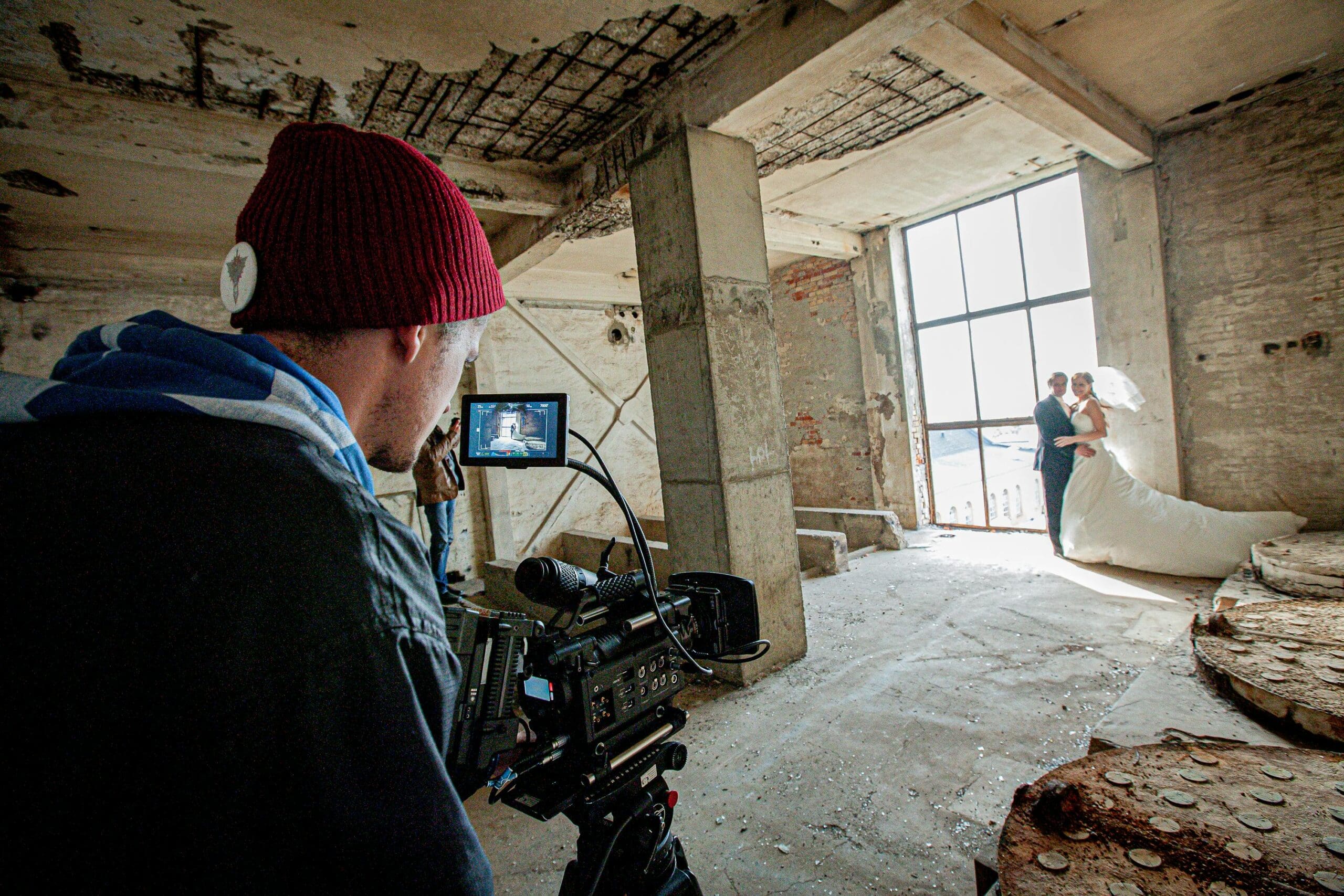
Why Videography Skills Are Essential in 2025
The demand for video content has exploded. Australian businesses spend over $2 billion annually on video marketing, and skilled videographers earn between $65,000 to $95,000 per year. From TikTok to corporate training videos, every platform and business needs quality video content.
Our videography course covers everything from basic camera operation to advanced editing techniques, preparing you for this booming industry.
Essential Equipment for Your Videography Journey
Camera Basics for Video Production
Unlike photography, videography requires understanding frame rates, codecs, and continuous autofocus. Start with:
- Camera with 4K capability (included in our course)
- Stabilization equipment (gimbal or tripod)
- External microphone (audio is 50% of video quality)
- Variable ND filters for outdoor shooting
- Extra batteries (video drains power quickly)
Editing Software Selection
Your videography course should cover industry-standard software:
- DaVinci Resolve (free, professional-grade)
- Adobe Premiere Pro (industry standard)
- Final Cut Pro (Mac users)
- OpenShot (beginner-friendly, included in our training)
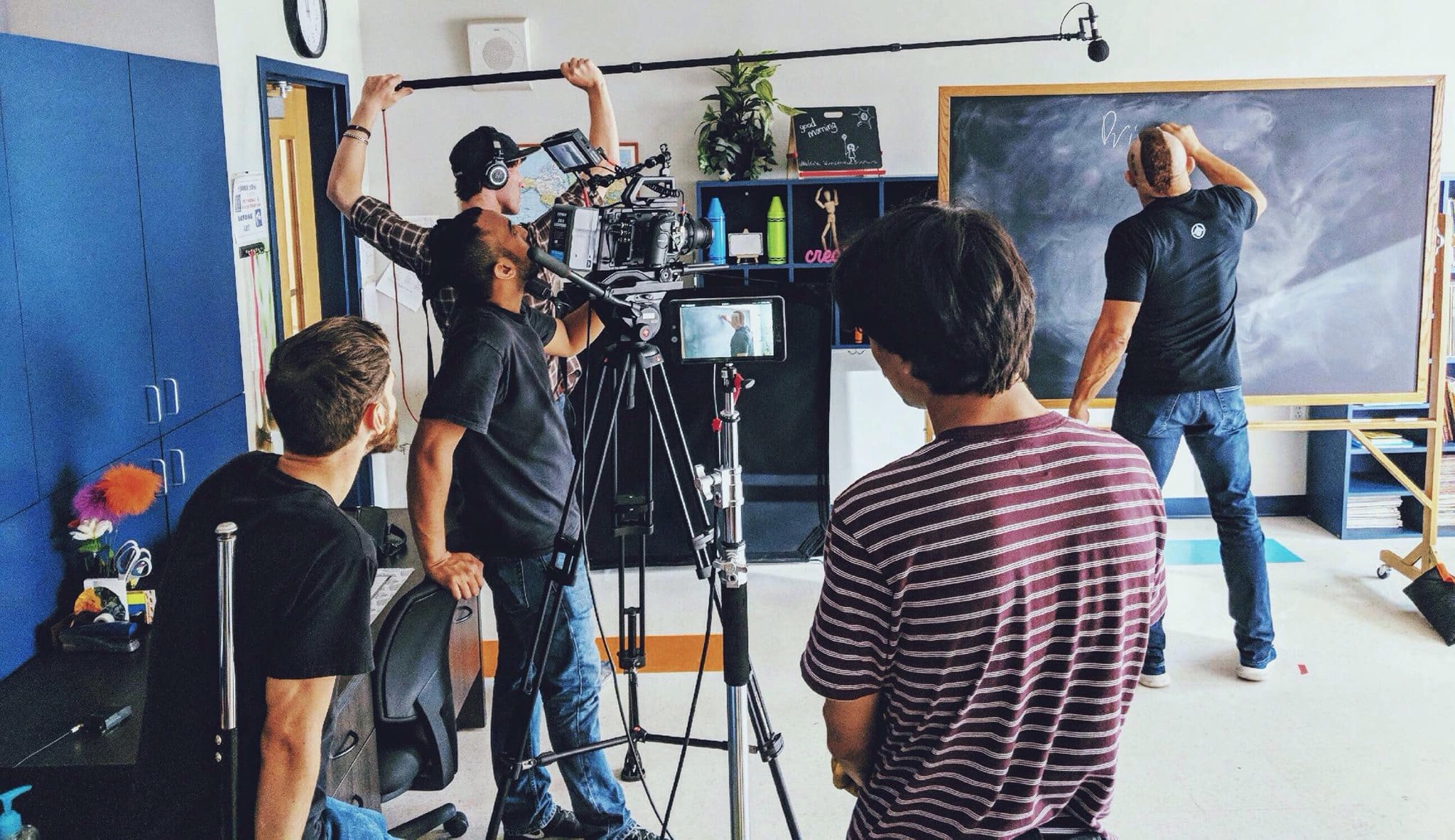
Core Skills Every Videography Course Should Teach
Pre-Production Planning
Successful videography starts before you touch the camera:
- Script writing and storyboarding
- Location scouting
- Shot list creation
- Client brief interpretation
Production Techniques
Master these fundamental skills:
- Camera movements: pans, tilts, dollies, and handheld techniques
- Composition for video: rule of thirds in motion
- Lighting for video: continuous vs flash
- Audio recording: proper microphone placement and levels
Post-Production Mastery
Editing is where your vision comes alive:
- Color grading and correction
- Audio mixing and synchronization
- Transition techniques
- Export settings for different platforms
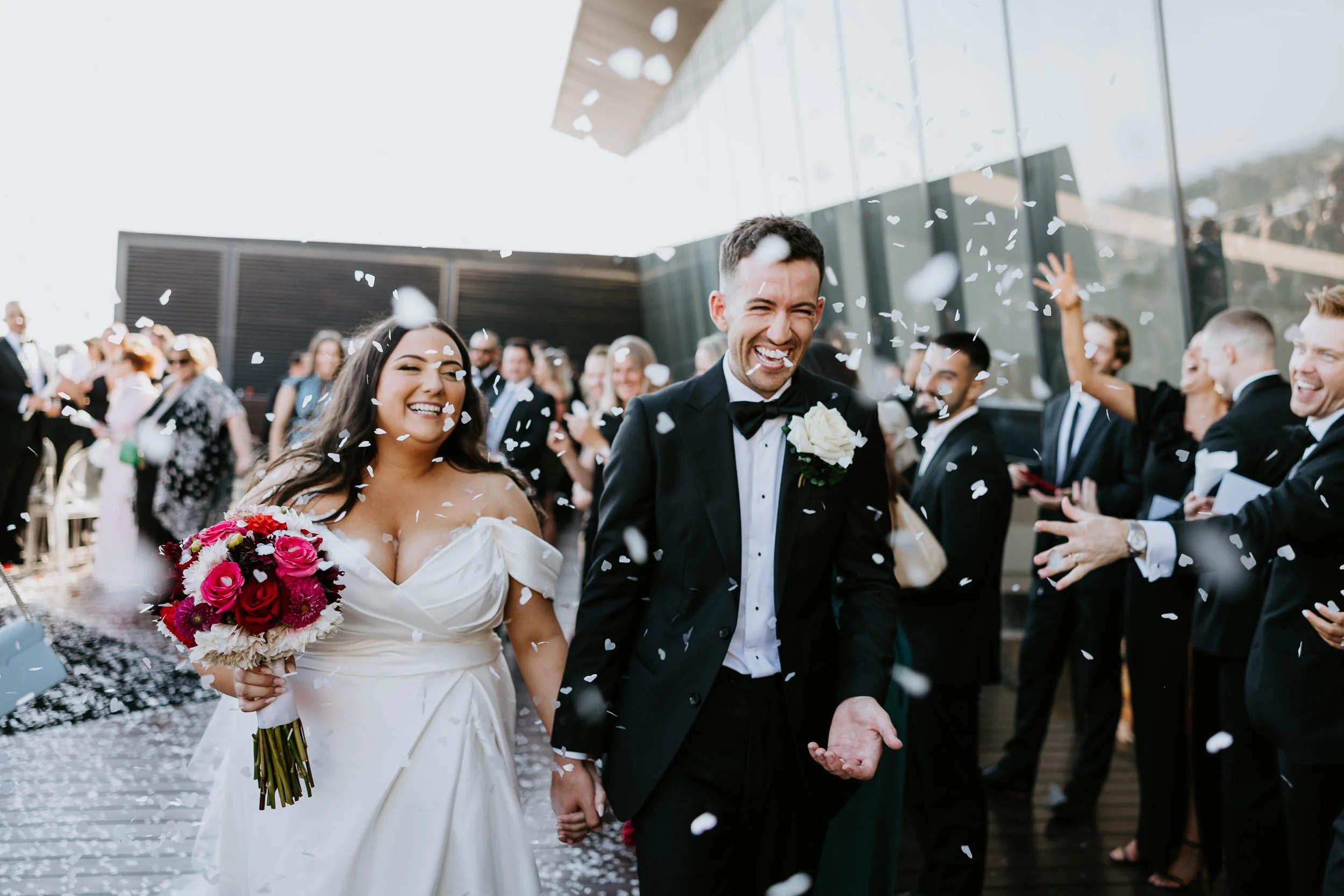
Videography Course Specializations
Wedding Videography
Australia’s wedding industry generates $6 billion annually. Wedding videographers charge $2,000-$5,000 per event. With our online videography course you’ll learn:
- Ceremony coverage techniques
- Couple’s story narrative building
- Drone footage integration
- Same-day edit production
Commercial and Corporate Video
Businesses need constant content. Master:
- Product videography
- Interview techniques
- B-roll shooting
- Brand storytelling
Social Media Content Creation
The fastest-growing sector requires:
- Vertical video optimization
- Quick turnaround editing
- Platform-specific formats
- Engagement-driven storytelling
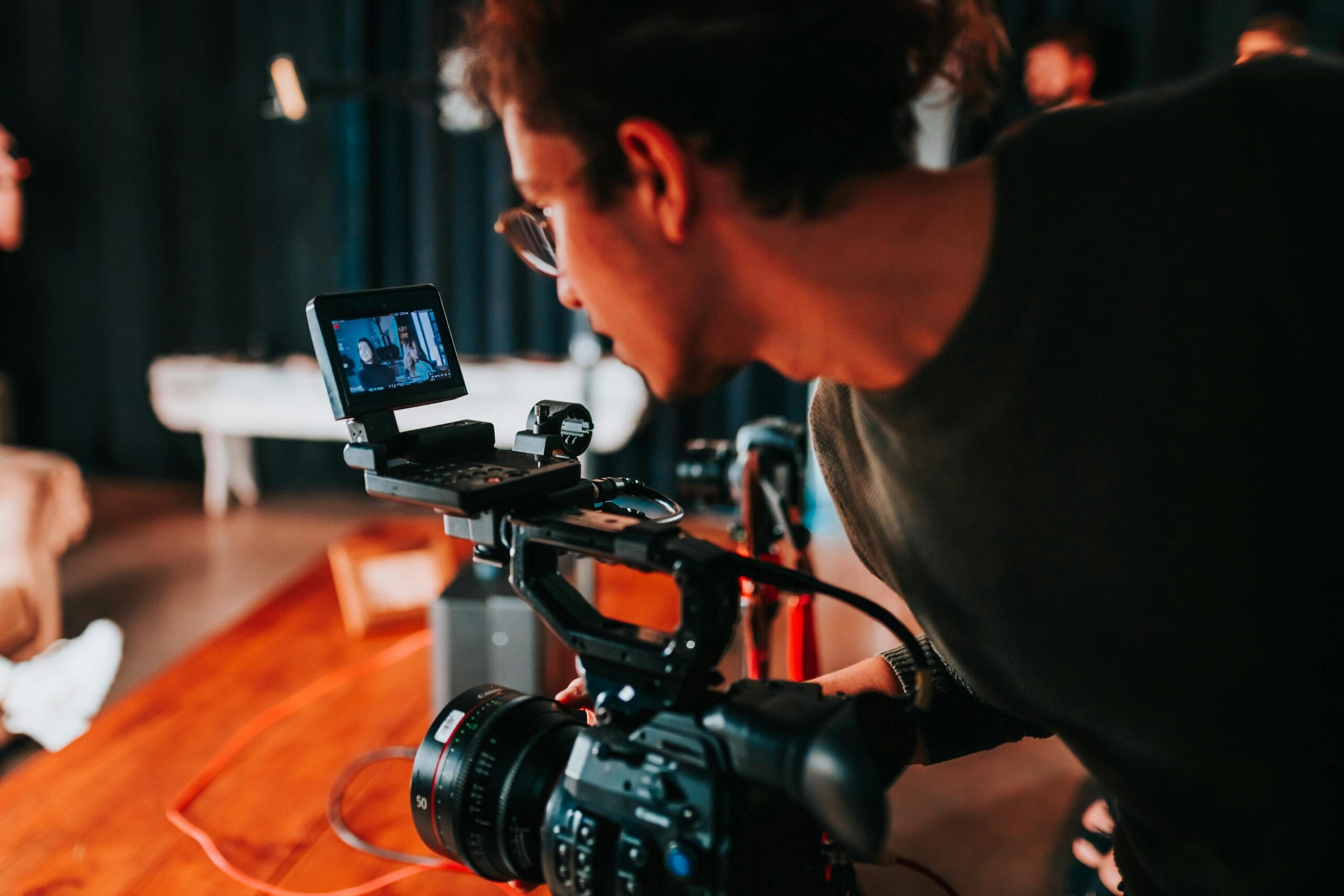
Learning Videography Online vs In-Person
Benefits of Online Videography Courses
Our online filmmaking course Australia approach offers:
- Learn at your own pace
- Practice with real projects immediately
- Access to nationwide experts
- Save thousands on traditional film school
- Equipment included and delivered to your door
Practical Experience Requirements
While theory is online, you’ll need hands-on practice:
- Film friends and family projects
- Create a portfolio while learning
- Join local videography groups
- Volunteer for community events

From Learning to Earning: Your Videography Career Path
Building Your First Portfolio
Start with these project types:
- Personal projects showcasing your style
- Free work for testimonials
- Spec commercials for dream clients
- Social media content demonstrating consistency
Finding Your First Clients
Australian videographers find success through:
- Local Facebook groups
- Instagram showcasing
- Wedding fairs and business expos
- Collaboration with photographers
- Google My Business listings
Common Videography Course Mistakes to Avoid
- Focusing only on equipment – Storytelling matters more than gear
- Ignoring audio quality – Bad audio ruins good video
- Over-editing – Sometimes less is more
- Not backing up footage – Always have redundancy
- Avoiding business skills – Success requires marketing knowledge
Investment and Returns
A quality videography course costs $3,000-$5,000, but consider the returns:
- Entry-level videographer: $50,000/year
- Experienced freelancer: $500-$1,500/day
- Wedding videographer: $2,000-$5,000/wedding
- Commercial projects: $5,000-$20,000/project
Start Your Videography Journey Today
Ready to learn videography online? Our comprehensive video production course includes professional camera equipment, editing software training, and business modules to launch your career.
Don’t wait for the “perfect time” – the demand for skilled videographers is growing now. Whether you want to capture weddings, create content, or produce commercials, proper training is your first step to success.
